It’s been over a month since “Dune: Part Two” was released in theaters, and it’s already a clear-cut success. The film’s now passed the $600 million threshold at the box office and the reviews have been consistently positive; not since the “Lord of the Rings” trilogy has such a seemingly-unadaptable book been so successfully adapted to the big screen. Already, “Dune: Part Three” has been confirmed to be in development, adapting the second book in the “Dune” series, “Dune: Messiah,” and hopefully wrapping up director Denis Villeneuve’s planned trilogy in a nice, satisfying bow.
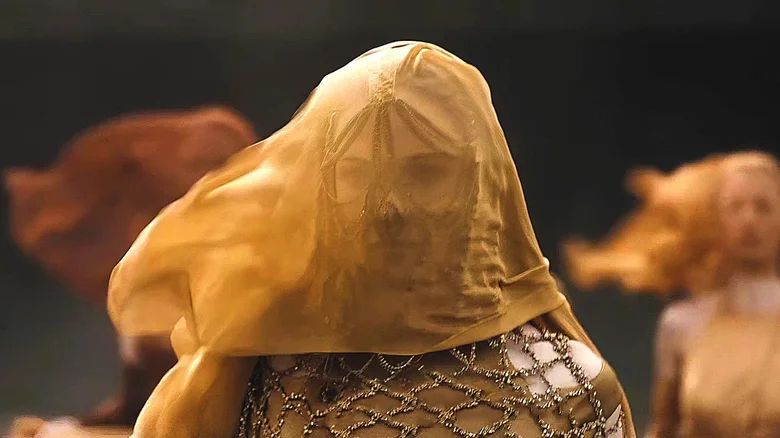
Already, however, there are a few challenges ahead for the Villeneuve. The first is that “Messiah” begins 12 years after the events of “Dune,” which means they’ll either have to delay the film a bit to let the actors age into the roles or put a lot of make-up on Timothèe Chalamet to sell the illusion that Paul’s spent that past 12 years weathering the Arrakis sun.
The other issue is that “Messiah” is a short but complicated novel; instead of many big cinematic action sequences, readers were given three hundred pages of various political factions scheming and counter-scheming against each other. Maybe Villeneuve will skim past this part like he did in the first movie, but that’s going to be tough considering the sheer amount of emphasis the second book places on it. “Messiah” is a book almost entirely about conversations, conversations where everyone involved is hedging their words and attempting to hide their true intentions.
But overshadowing all these issues is the problem of Jessica, played to perfection so far by Rebecca Ferguson. She’s been a major player in the first two movies, but she might not even be in “Part Three” at all.
Where Jessica goes from here
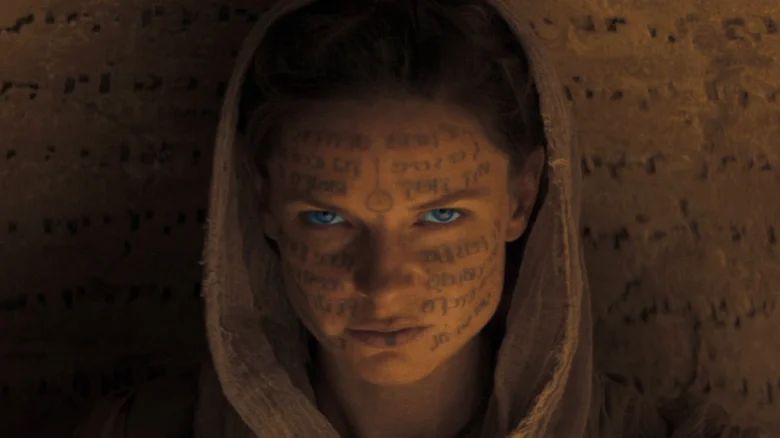
Although Jessica was arguably the co-protagonist of the first book, she spends the entirety of “Dune: Messiah” chilling back on her home planet of Caladan and (allegedly) hooking up with Gurney Halleck. During this period, she’s seemingly unconcerned with all the guilt and existential dread her son and daughter are dealing with back on Arrakis. She’s in retirement, essentially, although she’s on cordial terms with the other members of the Bene Gesserit.
Jessica only returns to the narrative in the third book, “Children of Dune.” By this point, Paul has abdicated the throne and wandered off blind into the desert, leaving his sister, the now-grown Alia, to rule until Paul’s children, the twins Leto II and Ghanima, come of age. The problem is that Alia has grown tyrannical and mad with spice by this point, and Jessica has to figure out what to do about the situation. She believes Alia’s too far gone, a monstrosity that needs to be put down, but Jessica’s also fully aware that Alia’s problems are pretty much entirely her fault. After all, Jessica drank the Water of Life despite knowing she was pregnant, and then she left her daughter for years instead of sticking around and guiding her in the right direction.
Jessica’s “Children of Dune” character arc mirrors Paul’s arc in “Messiah,” in that they’re both forced to reckon with the natural consequences of the choices they made back in “Dune.” Paul has to accept that his ascension to the throne has led to him basically becoming Space Hitler, and Jessica has to confront the fact that she’s turned her daughter into a monstrosity and then abandoned her to spiral into paranoid insanity.
Why it’s a problem
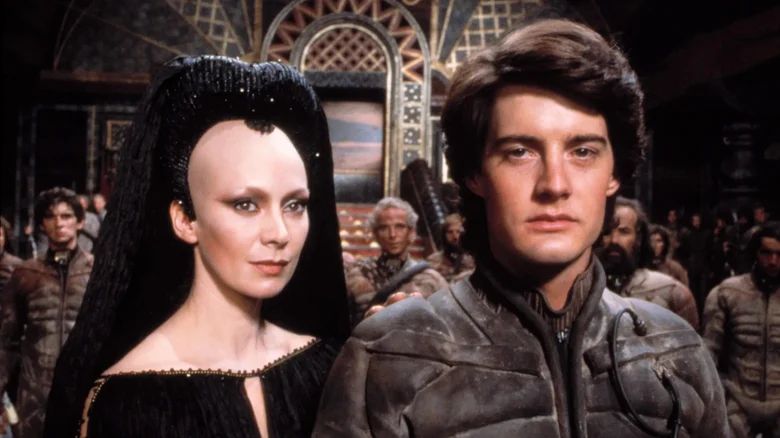
Because Villeneuve seemingly has no plans to adapt “Children of Dune,” a truly faithful adaptation of “Messiah” means we might never get that “Children of Dune” arc from Jessica on screen, which is the last we see of her in the books. For all the readers who latched onto the book version of Jessica, this would be particularly disappointing because “Part Two” is not a satisfying end for the character. Movie Jessica gets a compelling villain arc that perfectly complements Paul’s journey, but it doesn’t hold a candle to Jessica’s characterization in the novel.
Book Jessica, after all, is the heart and soul of the first novel. She’s still calculating and shrewd, and she still manipulates the Fremen for her own selfish aims, but she’s also genuinely concerned about where Paul’s heading and even encourages him at one point to choose happiness over revenge. The book stays in Jessica’s head after she drinks the Water of Life, watching her as she cares for young toddler Alia and she tries to make peace with how Paul is not only growing colder as a person, but how he’s quickly surpassing her in his abilities. There’s a relatable human sadness to Frank Herbert’s Jessica, as she realizes with growing dread and acceptance that her son’s outgrown her, no longer needing her love or guidance.
Movie Jessica, meanwhile, is lost to us the moment she drinks the Water of Life. From then on, she’s presented as terrifying and manipulative, serving as the devil on Paul’s shoulder as Chani acts as the angel on his other. It’s a choice that gives her more agency than she had in the book and emphasizes the anti-colonialist themes that were so commonly missed by readers at the time — but it all comes at the expense of nuanced characterization.
A familiar problem with modern adaptations
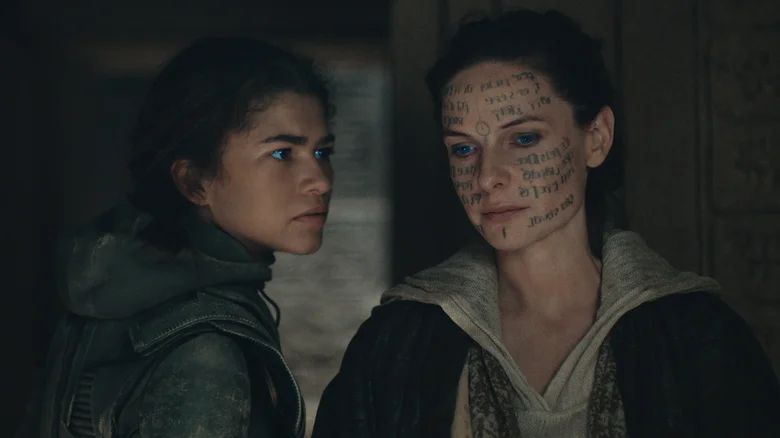
The changes to Jessica’s character arc in the movie feel similar to a lot of modern adaptations of older works. From HBO’s “Watchmen” letting its finale explicitly punish Ozymandias for his actions at the end of the original graphic novel, to “The Sandman” cutting a lot of the comics’ harsher elements, there’s been a tendency for modern adaptive fiction to sidestep any of the controversial elements from the source material, or to over-clarify things to avoid any potential backlash.
You can see this on display even in non-adapted stories, like how anti-hero dramas like “Barry” or “Bojack Horseman” are far more blunt about how irredeemable their main characters are supposed to be. Whereas “The Sopranos” and “Mad Men” were comfortable with trusting the audience to understand that Tony and Don were bad people regardless of their charisma, modern anti-hero dramas have felt the repeated need to give the audience multiple monologues about how the protagonist is not a role model and the viewers are wrong if they look up to him.
Likewise, while Frank Herbert trusted his audience to be critical of Paul and Jessica without spelling it out too much, the movies seem far less comfortable with the possibility of being misunderstood. This sometimes resulted in positive changes (like how Chani got to feel like an actual character instead of the blank, exoticized slate she is in the books), but it also meant that Jessica’s nuance was sacrificed. The book allowed its audience to sympathize with Jessica despite overall condemning her role as a manipulative colonizer; “Part Two” turns Jessica into a somewhat one-note villain, seemingly to appease the small but loud section of the audience that might not get that what she and Paul are doing is supposed to be wrong.
Why Jessica should return anyway
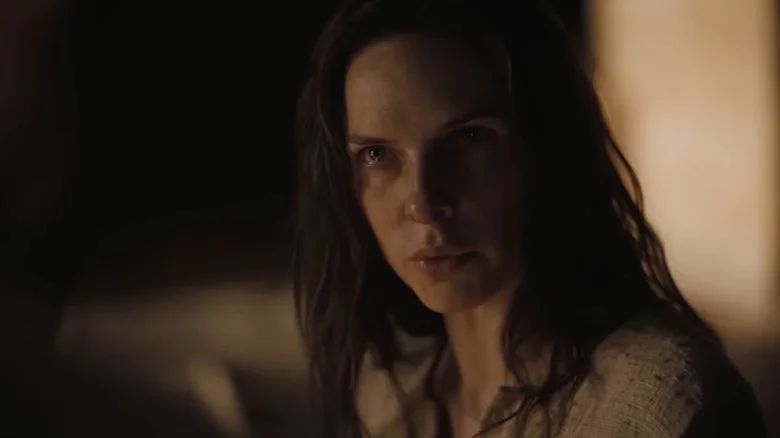
The good news for fans of Jessica is that Denis Villeneuve has already proven that he’s more than happy to change the source material to better fit his artistic vision. Just as “Part Two” placed far more emphasis on characters like Irulan and Chani, there’s plenty of precedent for “Part Three” to add some extra material for Jessica.
The big question is, where would Jessica fit? “Part Three” presumably needs to give coherent character arcs for Chani, Irulan, and Alia, as well as introduce a cloned Duncan Idaho, the Tleilaxu, and the Ixians, not to mention completing Paul’s arc. It’s a busy book that spins a lot of plates at once, so adding another one in the mix might knock all the others over.
The smartest guess, at this point, is that Villeneuve will move up elements from Jessica’s “Children of Dune” arc by centering her storyline around her mother/daughter relationship with Alia. It wouldn’t just thematically connect Jessica to Paul, letting them both go through “what have I done?”-style arcs at the same time rather than separately, but it would ease the blow for fans disappointed by the lack of toddler Alia in “Part Two.” Keeping Alia as a talking fetus throughout the movie was a reasonable choice, but it also denied Jessica one of her most humanizing storylines in the book, where she protected child Alia as she struggled to fit in with the regular Fremen children. We’ve never seen movie Jessica interact with her daughter outside the womb yet, so hopefully “Part Three” will give us a proper glimpse of what that looks like.
Imagining a conclusive Part 3
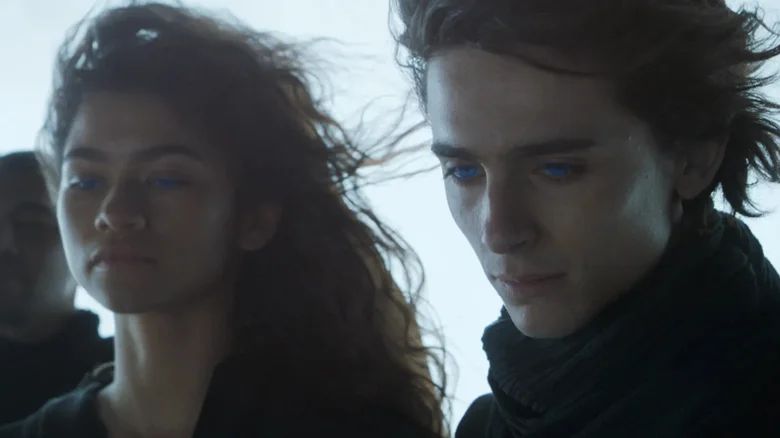
One concern with moving up Jessica’s “Children of Dune” arc is that it would complicate things for future “Dune” adaptations. Villeneuve may only be directing the first two books, but what about any director who wants to take over the franchise from there? The simple answer is that moving up Jessica’s arc would free the next movie’s time to focus on the many other storylines going on in the third novel; that book is also super complicated with multiple factions scheming against each other, so establishing Jessica and Alia’s antagonistic relationship earlier on might make things easier for whoever’s making the next adaptation.
The bolder answer is that perhaps Villeneuve shouldn’t concern himself with future adaptations at all. He’s already made the major change of having Chani walk away from Paul during his betrothal to Irulan; perhaps he’ll take even more steps to emphasize Paul’s downfall in “Messiah.” Maybe this version of Paul will never have children with Chani. Maybe “Part Three” will cement Paul’s decision to reject the throne by letting him not leave any heirs at all.
This would certainly anger a lot of fans of the books, but when it comes to establishing Villeneuve’s three “Dune” movies as their own self-contained trilogy, complete with a solid ending rather than a set-up for more movies to come, it might be the smartest choice. Frank Herbert’s series infamously never got a proper ending, in part because Herbert aimed for seven books and unfortunately died after publishing the sixth. It might be a shame to miss out on adaptations of those later novels, especially the delightful “God Emperor of Dune” with its charming worm-emperor main character, but perhaps it would be better for the “Dune” movies to leave us wanting more.